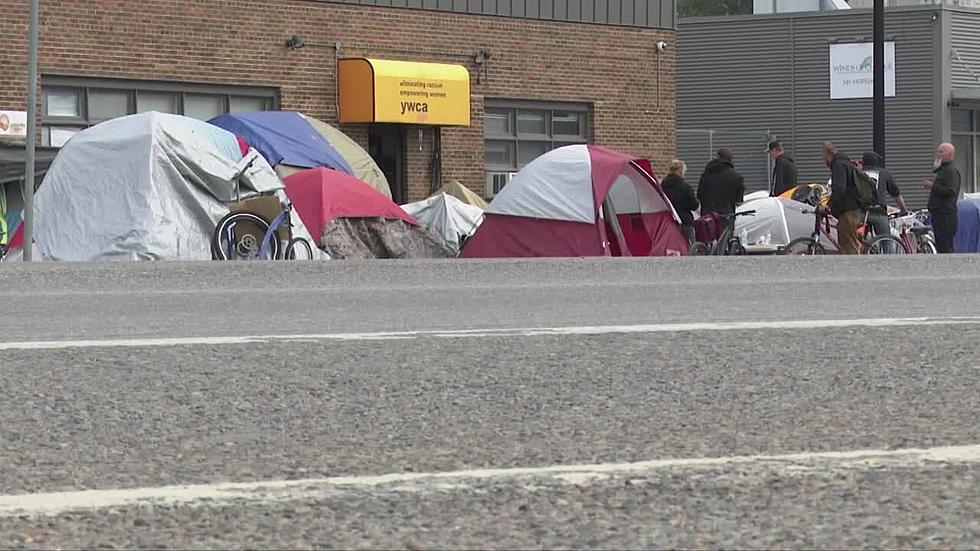
City takes steps on urban camping; council member threatens lawsuit
Martin Kidston
(Missoula Current) Drug needles, trash, violence and other concerns mounting in areas around Missoula as a result of urban camping prompted the City Council on Wednesday to declare an emergency and change an ordinance allowing officials to move homeless campers from city parks, trails and conservation lands.
While one City Council member threatened to bring a lawsuit against the city if it adopts the ordinance, supporters believe it brings the city into compliance with a recent court decision and will help restore a sense of safety as Missoula residents and their children venture into the city's parks for the summer.
“Ultimately we're going to need more shelter capacity. But that's going to be a heavy lift,” said council member Gwen Jones. “As for this summer, we need to create the tools to make it work the best we can. To me, kids are a very high priority and we need to make sure we don't have overlapping user groups that aren't compatible in our parks. Our kids need to be safe.”
If it passes final adoption, Wednesday's actions will strike a section of city code that prohibits camping on all public property – a regulation that didn't comply with a recent decision by the Ninth Circuit Court.
Instead of that blanket ordinance prohibiting camping everywhere, the remaining sections of the ordinance will be left standing to permit the city to close public parks, trails and conservation lands between 11 p.m. and six a.m., with the exception being commuter trails.
Violators attempting to camp in closed areas would be asked to move along and if they refuse, they could be cited. City officials called it a minor but important change that gives the city a tool to maintain “a level of decorum, safety and security for all of our residents and visitors.”
“As summer begins and all those camps and day cares open up, we need ways to ensure that we have a way to provide the safety our residents expect in our parks system,” said parks Director Donna Gaukler. “At times we have situations of encampments where we're observing hypodermic needles, human waste and other dangerous situations. We can't expect our kids to have the experience to know what's safe and what's not. This is a surgical approach to maintain a level of safety.”
Public Frustration Grows
The issue of urban camping has left many Missoula residents frustrated with city officials for not addressing the problem. But the city says the failure of the crisis services levy last November, the lack of funding to provide adequate shelter and a recent decision by the Ninth Circuit Court has left them with few tools to address the problem.
As a result, parks and sidewalks in areas of the city have been converted into urban campgrounds. The resulting trash, drug paraphernalia, crime and waste have prompted growing frustration among the public and left members of City Council inundated with angry complaints.
As one council member noted, few other issues have generated such a heated public response. Mayor Jordan Hess said Wednesday's action is one of many steps “we're taking or contemplating taking with the escalation in urban camping.”
“We have an obligation to have a compassionate response to those in our community who are living without shelter,” Hess said. “We also have an obligation to protect the health, safety and welfare in our community and to address problematic behavior, aspects of urban camping that are dangerous and unsafe, and to protect those in our community who are experiencing some of the negative aspects of urban camping.”
Members of the public on Wednesday detailed some of those negative aspects, from assaults and solicitations for sex to public masturbation and drug use. Parents are increasingly concerned for the safety of their children while others worry about the impacts of urban camping on the environment, particularly along the river.
Advocates of the ordinance change said it's not perfect, but most described it as a necessary step to protect the public. The measure passed committee on an 8-1 vote, with council member Daniel Carlino standing alone in opposition.
He also tried to add an amendment, which also failed on a 9-1 vote.
“This is absolutely not a solution,” he said. “I guess I'll reach out to the ACLU and other groups who are ready to sue over things like this. You're just trying to move someone from one space to another space. It's not going to make our community safer. I'm very disappointed in this council.”
If adopted next month, the ordinance would take effect immediately and stay in effect for 90 days.
